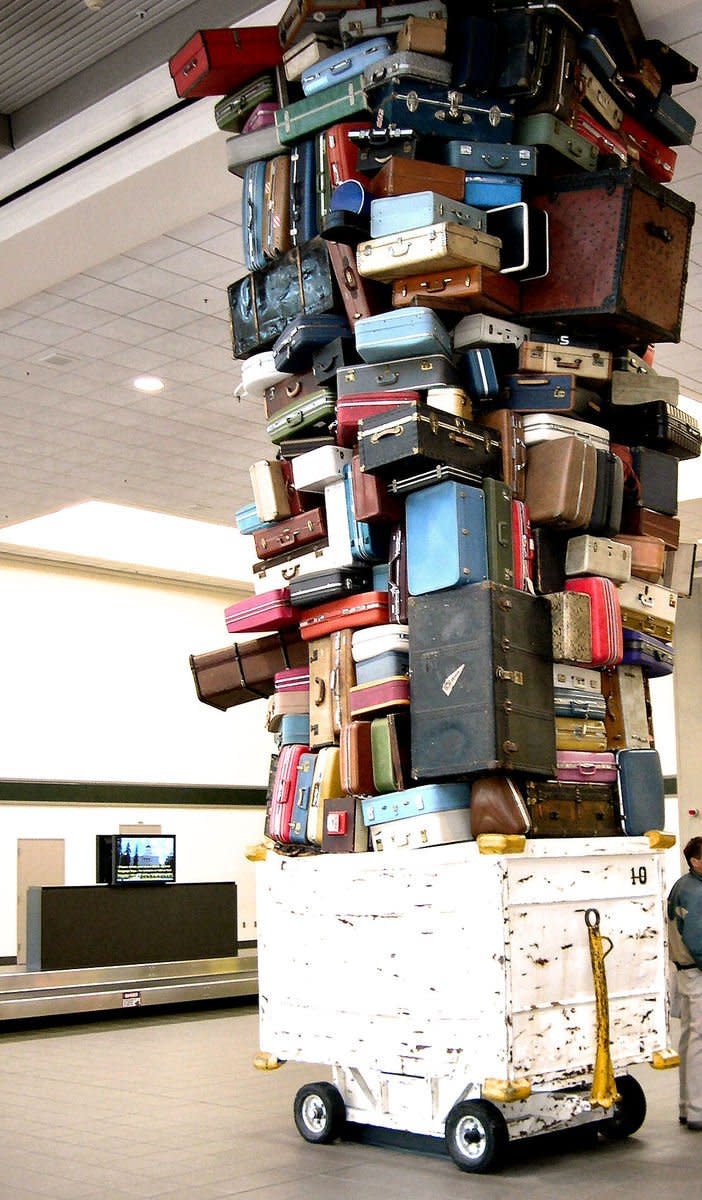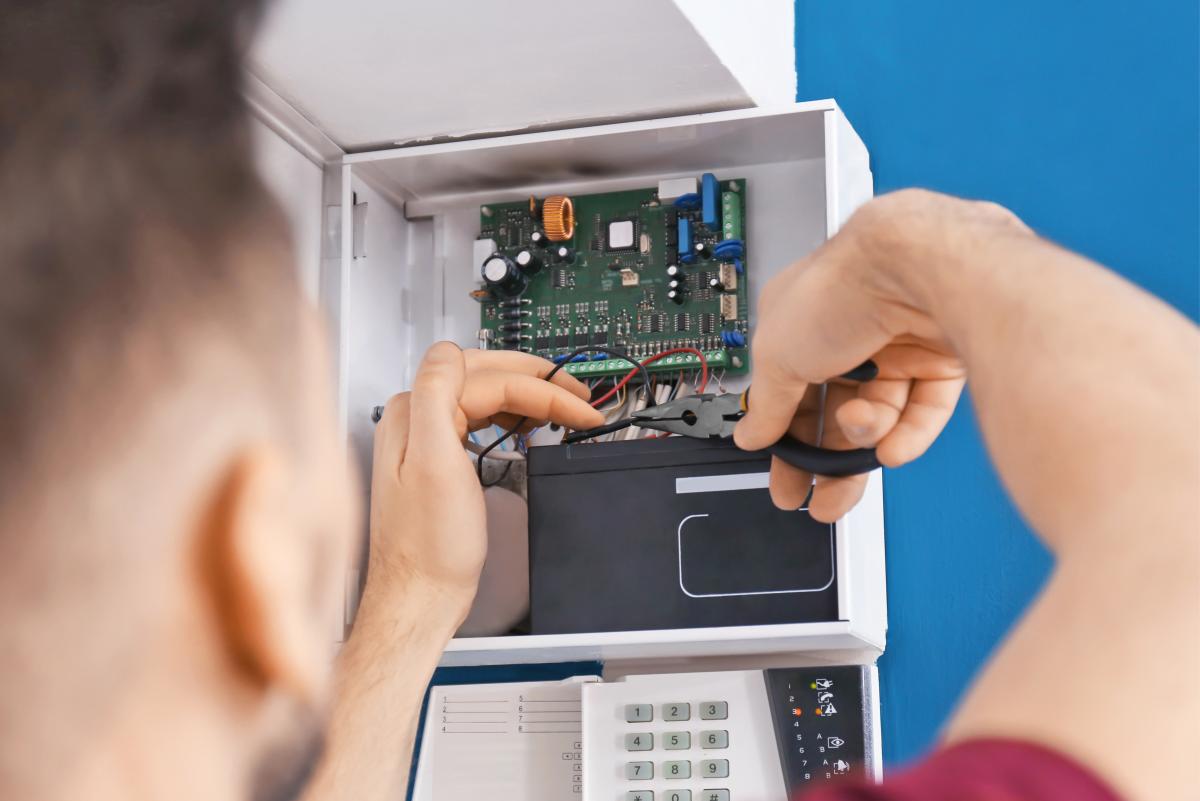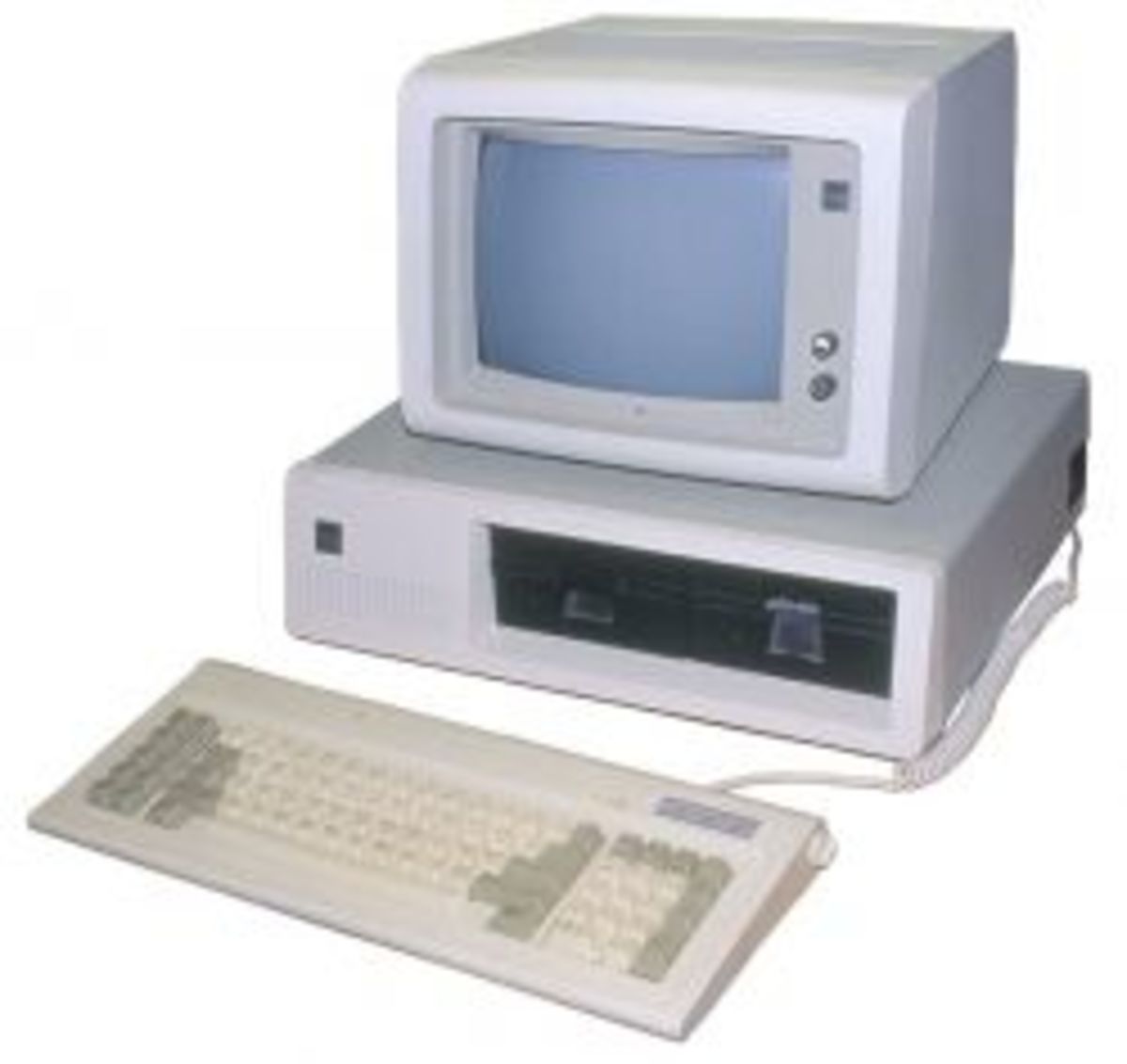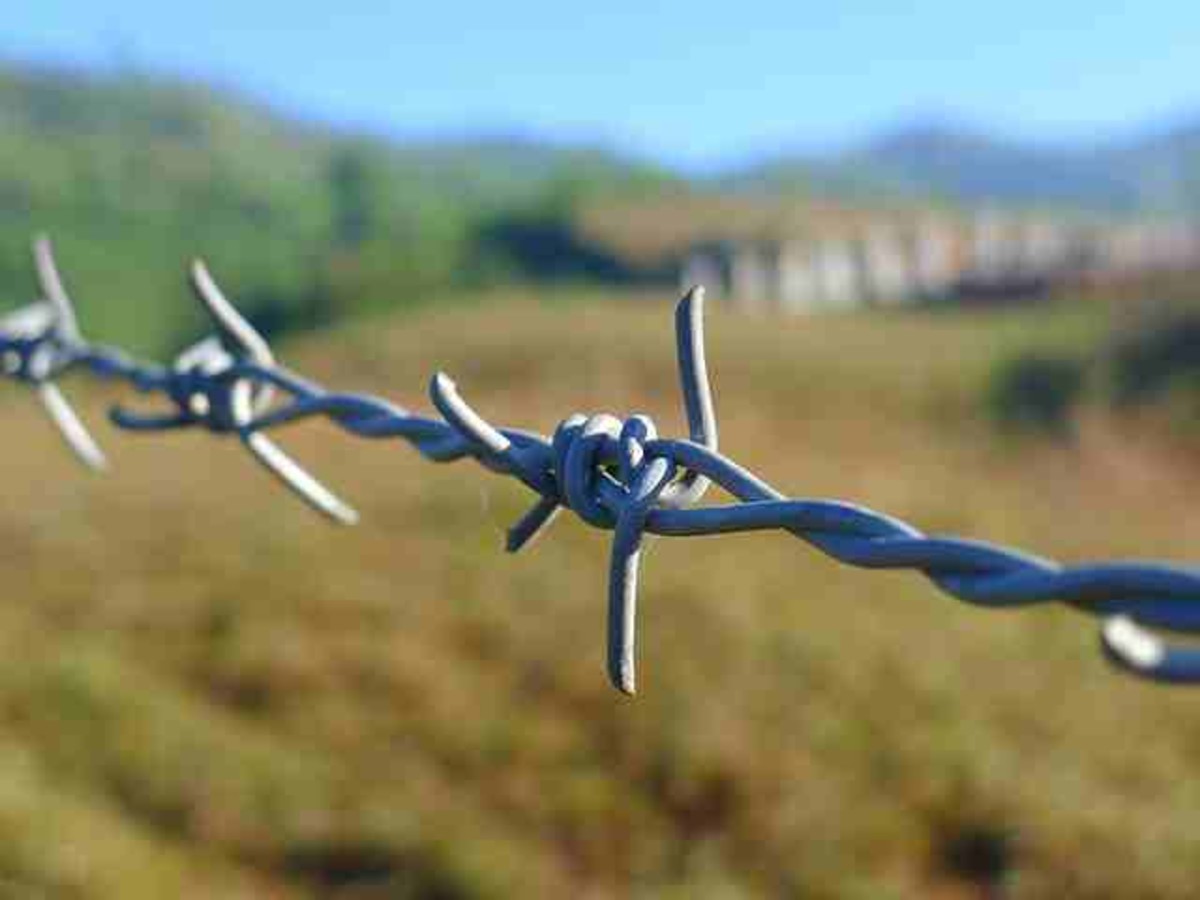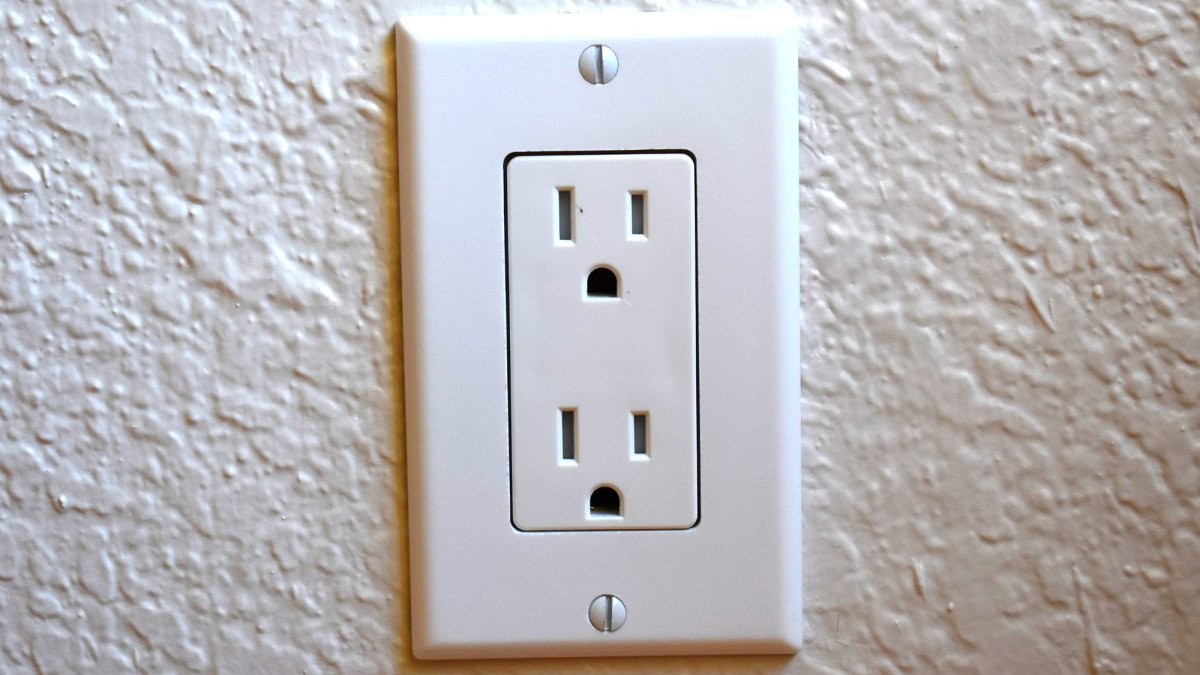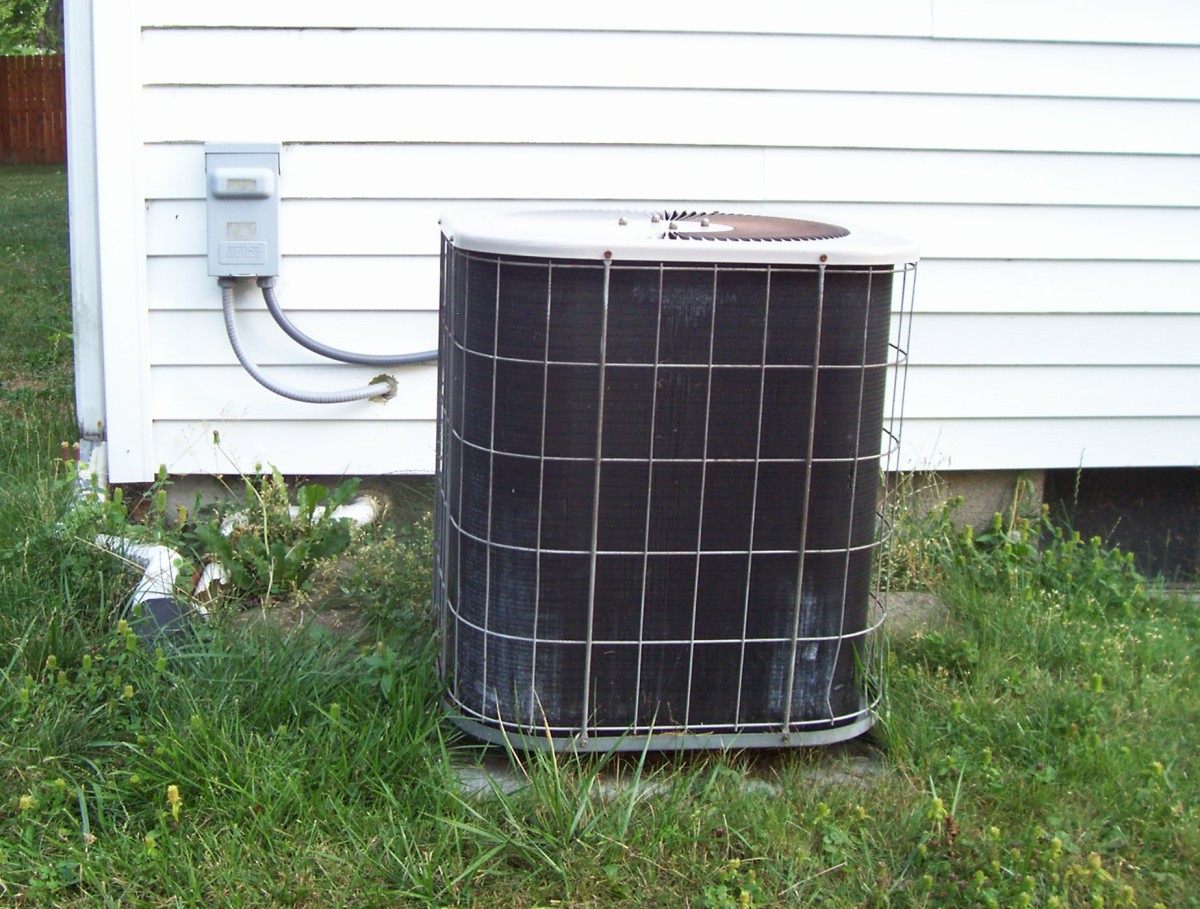About Home Security
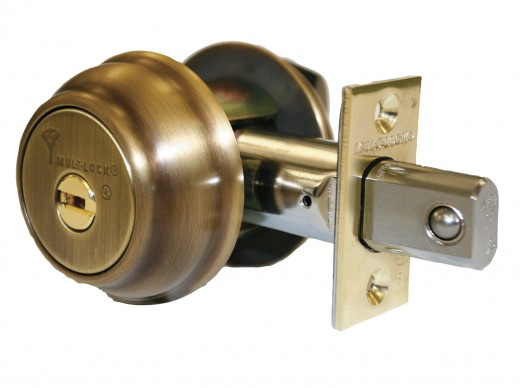
Information About Home Security
A majority of us are worried about leaving home while either at work or on vacation. If the neighborhood is considered to be bad in terms of crime, it may be troublesome going to sleep. A lot of people live in fear or leaving their kids or an old person at home due to the fact that someone could easily break in to their home and harm them. Due to this fear, some may even hide weapons in the house.
Each and every one of these fears that people develop stems from incidents that have happened in the past to others. These days, people are getting more cautious about protecting their loved ones and their homes. Most use burglar alarms, keep their doors locked at all times, never open their doors to strangers, and keep their windows locked. When going out of town, they will inform neighbors that they will be away – and then will invest in a home security system.
Burglars and intruders alike will often keep a watchful eye on any opportunities that present themselves to gain entrance to a home. Thieves do their research well and look for any entry that they can use to enter the home such as doors, windows, skylights, and chimneys. They will also pay attention to any surveillance systems as well, and do their homework on how to disable or avoid them. If a house is well equipped with alarms, cameras, and motion detectors, a burglar may actually think twice before he attempts to ransack a home.
What many fail to realize is the fact that burglars are smart people. They spend a lot of time planning to rob a home, carefully studying and watching. Although locking your doors and windows will help to an extent, it normally won’t keep a determined burglar out of your home. If a burglar sets his mind to something and has a plan in mind, simply locking your windows and doors isn’t enough.
If you have sturdy and strong doors and windows on your home, it will take the burglar extra time to break in. In the process, he can easily get caught due to the high level of noise he will make trying to get into the home. If you have a lot of valuables in your home, you can always invest in a strong fireproof safe to store them in. To protect the exterior of your home you should have always have good lighting in your yard.
Alarms are popular to use as well, as most will go off the second a burglar tries to open a window or a door. They are very popular these days, providing a high level of security for your home. Alarms and surveillance systems include a variety of detectors, control panels, alarms, and cameras. Although they may cost you a bit of money – the peace of mind and safety of your family is more than worth the investment.
No matter what area you may live in, you can always secure your home. To better secure your home and know what equipment you need, you should always try and understand the frame of mind that burglars use. This way, you’ll know what you need to protect your home. Home security is a common issue these days and for good reason. With crime steadily on the rise – protecting your home, your family, and your belongings becomes more and more important.
When the topic of home security springs to mind, most people seem to think of burglar alarms and little to nothing else. Alarms can be a great way to protect your home, although they are only a small part of what makes up an effective home security system. Burglar alarms are a key to protecting your home – although there are other things you’ll need as well.
Believe it or not, the windows are actually the key to home security. Homes that have poor constructed windows tend to get broken into a lot more than homes with secure and sturdy windows. When you are dealing with your windows, you should make sure that you have tough glass and locks that fit to the windows. When you are away from home, you should always make sure that your windows are locked. Even though some windows may be hard to reach, you should always lock them. Burglars make a living out of stealing – and they will normally find a way in if they see the opening.
Along with the windows, doors are also known to be a weakness of security around the home. Doors should always be strong and sturdy, complete with tough locks that aren’t easy to force open. If you have a spare key, you should be careful where you leave it. Losing your keys can also make you a target, especially if you have anything on your key ring that reveals your home address.
To better protect their homes, most people choose to invest in a home surveillance system. These systems are great for monitoring the home, as they can record video and keep it stored for you to view later. If you travel a lot, a home surveillance system can be an ideal way to keep a check on your home while you’re away.
Guard dogs are also common with home security as well. A guard dog can protect your home from burglars, thieves, and other types of trouble. Guard dogs can be very handy to have around, as most dogs are more than capable of scaring away trouble with their bark. The only downside to guard dogs is the fact that you’ll need to train them and ensure that they always have food and water.
Last, but certainly not least are burglar alarms. Burglar alarms can be effective to an extent, although they are primarily good for scaring thieves away. If you put an alarm in a visible location from the outside of the home, most burglars won’t even attempt to enter your home. Even though burglar alarms are great for scaring off thieves – you’ll still need to have other areas of your home safe and secure as well to get the most of your home security.
The Best Ways To Prevent Burglary
These days, home burglary is one the rise. Over 70% of all crime these days relates to property crimes, normally involving the home. Although police and local authorities are doing everything they can to put a stop to crime, burglary is something that cannot be stopped. Even though there are ways to protect yourself, burglars will always be lurking out there - waiting for their next victim.
Even though there are ways to prevent unwanted entry to your home, a determined burglar will always find a way to get in. Breaking and entering is his job, and most burglars are extremely good at it. Statistics show that burglaries occur every 15 seconds. What that means, is that every 15 seconds there is someone out there getting robbed.
Over the years, home burglaries have received a lot of attention, some of which have even been on the news. Although some burglars eventually get caught and arrested, most seem to disappear without a trace. To protect yourself and your home, there are tactics such as security alarms, burglar alarms, and even security cameras that you can use.
Property marking is a great way to protect yourself as well. Property marking involves marking everything that you own with a signature or mark that you can easily identify once the property has been recovered. You can use micro dots, UV pens, or even laser pens. The idea here is to mark your property so it won’t be easy to sell on the black market. Even though it may sound weird, most burglars do study their targets quite a bit before they decide to rob them.
One of the most effective forms of home security is the home security system. If a burglar tries to rob your home and notices that you have a security system set up, he will normally start to get second thoughts and eventually change his plans. On the other hand, if the burglar decides to go ahead and rob a home with a surveillance system anyway, the system will normally catch him on video, making it easy for the police to identify who he is. Home surveillance and security cameras are great to have, and can either be wireless or wired, dummy or real, outdoor or indoor, or even a combination of several.
Alarms are also a great way to prevent burglary. The police will tell you that home burglar alarms prevent over 50% of attempted burglaries in the home. There are several types of burglar alarms, from those that aren’t expensive to those that are monitored around the clock. Alarms will let burglars know that robbing your home isn’t going to be easy, and that they should really give it a second thought. Tried and true over the years, alarms have be proven to be very effective and above all else - they work.
No matter what direction you decide to take, there are indeed ways that you can protect your home from burglary. In the United States, home security systems have really become a big business. Millions of home owners throughout the U.S. are investing in security and surveillance systems, knowing that the day will come when they will come in very handy. Even though you may never be robbed, there is always a chance. Burglaries can happen at any time, which is why you should always be protected. If you think ahead and invest in a security system, you’ll be prepared for anything that happens. You have to think in terms of self defense - and ensure that your home is protected for anyone who decides to make you a target.
Home Security Systems
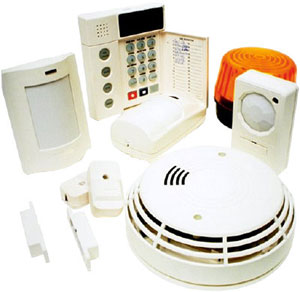
The Cons Of Home Intruder Alarms
Although home intruder alarms are thought of being an integral aspect of home security, research has shown that these alarms aren’t difficult at all for professional burglars. The reason for this is due to the fact that most homeowners tend to forget to set the alarm or fails to lock up the windows and doors like they should. Although the technology behind home intruder alarms is great, the technology can’t really do anything for you unless you use it properly.
Even though you may set your alarms when you leave, there is always that one chance that you may forget. On that very day that you forget a burglar can easily cash in on your mistake and break into your home. Most professional burglars are very familiar with home intruder alarms and know exactly how to deal with them. Even though you may have the most expensive alarm on the market today, it won’t be able to do anything if you forget to program it.
Almost all home intruder alarms need to have the windows and doors properly shut before they are activated. When you enter or leave your home, you’ll need to enter a password into the control panel to activate or deactivate the alarm. If you arrive home and forget to deactivate the system, it could go off on you. This can be very embarrassing, especially if the alarm sounds and the police show up – only to find that you are trying to “break in” to your own home!
Most burglars out there can rob a home in as little as 15 minutes. Although some burglars choose to work with others, most prefer to work along. The experienced burglars almost always do their research first, and go from there. A professional burglar will never enter a home he isn’t familiar with, for the simple fact that he could get caught. Instead, he will spend a lot of time studying the home and the family. If there is a home intruder alarm present, the burglar will watch from the shadows until he has learned how the system works. Once he sees that you have failed to input your password or activate the system, he will make his move. Once the burglar is inside the house and the alarm is off – he can be nearly impossible to catch.
If the alarm is set and the burglar happens to trip it, he will immediately flee from the area and move on to a different home. Home intruder alarms can be very loud, with most contacting the police or other law enforcement agency the second they notice a break in. Even though they may have their faults – home intruder alarms are still great to use with home security as long as you remember to activate them before you leave your house.
Basic Knowledge About Home Surveillance
If you are interested in protecting your home with a surveillance system, you should first grasp the concepts of the technology. There are several home surveillance systems to choose from, making it in your best interest to learn all you can. Most aren’t hard to install or monitor - providing you have the right guide to assist you.
No matter how hard you may try, it can be nearly impossible to ask the right questions or complete your goals without first finding yourself overwhelmed by possibility. There are many alternatives and “what ifs” to any home surveillance system. Selecting which type is best for you can be a bit easier, if you know what they offer and which one will work the best for you.
Closed circuit television and several other types of electronic devices are much more common these days, and easier to operate than ever before. They are also more affordable as well, and becoming more and more popular with home owners everywhere. The basics behind closed circuit systems lets you know that the signals the camera picks up aren’t broadcast through the air, but instead sent directly to the monitor, which can be observed from virtually anywhere - at anytime.
If you learn more of the basic concepts involved with home surveillance systems, you can make more sense of the language when you talk to salesman and others in the trade. If you aren’t familiar with any of the technology or systems at hand, you won’t know what salesman or others in the trade are talking about when you inquire about your home surveillance system.
Therefore, you should always strive to learn as much as you can about the terms and subjects of home surveillance. It’s actually easier than you may think, as long as you keep it simple. Once you have built the foundation, you’ll find it easier to learn more.
The first thing to know is that the camera is responsible for all images that are displayed on the monitor or captured. The performance of the camera will vary on the reflected light available on the area that you are surveying, the quality of the components that you are using, and the overall performance of the camera. Some cameras are high quality, while others can be very poor and lack in direction.
Overall quality with a home surveillance system however, will greatly depend on the weakest area of the chain. To get the most from your system, you should always make sure that each and every component is of the same quality. This way, you can get great display images without having to worry about shoddy quality. If you do your research and compare, you can even get great quality at very affordable prices.
When you select the home surveillance system that you will be using, you should always take the time to research and compare. If you understand the basic concepts of home surveillance, you’ll have a much easier of time of selecting your equipment and components.
To make the best decision possible, you’ll need to look at certain areas of home surveillance systems, such as the illumination, lighting, resolution, sensitivity, and the video signal that is sent to the monitor. The quality will vary among the different options you have available, which is why you should always look for the best system that you can afford. This way, you’ll have the surveillance protection you need for your home - at a price you can afford.
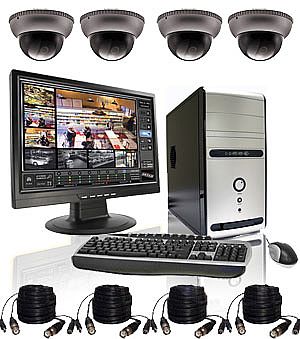
Home Video Surveillance
When they were first introduced, video surveillance systems were mostly used with medium to large businesses. These days however, they are becoming more and more common in homes. Video surveillance security systems are also known as Closed Circuit TV (CCTV) and are used to monitor certain areas around the home and help to protect it from burglars and thieves.
The monitor is a key aspect to the video surveillance setup. The monitor will feed the video from the cameras that make up the system. The monitors are normally black and white and feature a higher resolution than that of a standard television set. Monitors vary in size and resolution, although the standard resolution is between 500 and 1000 lines.
Cameras are also important. When setting up the home video surveillance system, the cameras are placed strategically around the outside of the home, in the most vulnerable areas. They should be set up in areas where they are nearly impossible to see. The cameras are always working, sending the video transmissions to the monitors on a frequent basis.
Coaxial cables are also a must have for video surveillance systems. The coaxial cables are what transfers the video signals from the camera to the monitor. The cables are available in a variety of sizes. You can find them at a local electronics store in your area. Your home video surveillance system will come with coaxial cables, although you may need more depending on where you plan to set the cameras up at.
Home video surveillance systems also use switchers. Switchers allow you to run multiple camera feeds to one monitor. Normally, a switcher will cycle through feeds unless it detects movement going on around a camera. When the switcher detects any type of movement, it will automatically lock in to the camera that has detected the movement.
There are some video surveillance systems that you can get for the home that make full use of VCRs. These systems will use the VCR to record any live video feed that you program. This can come in handy if you travel a lot, as the VCR can capture a break in as it happens. If you end up going to court or to the police, you can use the video tape as evidence. VCRs can catch burglars in the act – especially if you set the camera up to a location that is hard to see.
By utilizing the combination of a monitor and video camera, home video surveillance systems can easily catch burglaries and break-ins. They are very affordable these days, and used in thousands of homes throughout North America. If you’ve been looking for the ideal way to protect your home – a home video surveillance system is something you should look into immediately.



